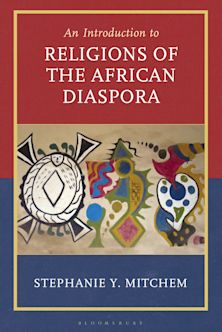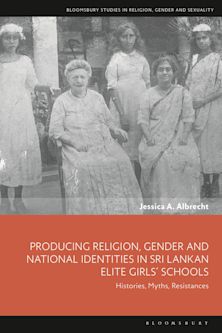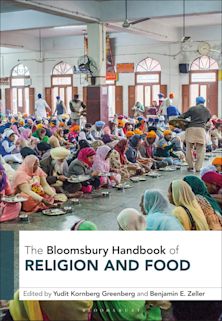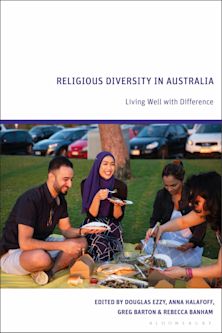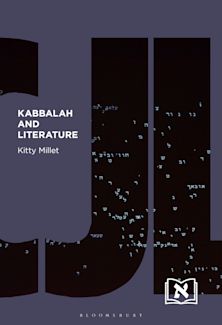- Home
- ACADEMIC
- Religious Studies
- Comparative Religions
- Friendship across Religions
Friendship across Religions
Theological Perspectives on Interreligious Friendship
Alon Goshen-Gottstein (Anthology Editor) , Balwant Singh Dhillon (Contributor) , Timothy Gianotti (Contributor) , Alon Goshen-Gottstein (Contributor) , Maria Reis Habito (Contributor) , Ruben Habito (Contributor) , Ryan McAnnally-Linz (Contributor) , Eleanor Nesbitt (Contributor) , Anantanand Rambachan (Contributor) , Meir Sendor (Contributor) , Johann M. Vento (Contributor) , Miroslav Volf (Contributor)
Friendship across Religions
Theological Perspectives on Interreligious Friendship
Alon Goshen-Gottstein (Anthology Editor) , Balwant Singh Dhillon (Contributor) , Timothy Gianotti (Contributor) , Alon Goshen-Gottstein (Contributor) , Maria Reis Habito (Contributor) , Ruben Habito (Contributor) , Ryan McAnnally-Linz (Contributor) , Eleanor Nesbitt (Contributor) , Anantanand Rambachan (Contributor) , Meir Sendor (Contributor) , Johann M. Vento (Contributor) , Miroslav Volf (Contributor)
This product is usually dispatched within 1 week
- Delivery and returns info
-
Free CA delivery on orders $40 or over
You must sign in to add this item to your wishlist. Please sign in or create an account
Description
This book explores the notion of interreligious friendship. Friendship is one of the outcomes as well as conditions for advancing interfaith relations. However, for friendship to advance, there must be legitimation from within and a theory of how interreligious relations can be justified from the resources of different faith traditions. The present volume explores these very issues, seeking to develop a robust theory of interreligious friendship, from the resources of each of the participating traditions. It also seeks to feature particular individual cases as models and precedents for such relations. In particular, the friendship of Gandhi and Charlie Andrews, his closest personal friend, emerges as the model for the project.
Table of Contents
Overview: Introducing Interreligious Friendship: Types of Friendship, Alon Goshen-Gottstein
Summary of Essays on Interreligious Friendship, Stephen Butler Murray
Introduction: Friendship Across Religions—Project Overview and Synthesis, Alon Goshen-Gottstein
Chapter 1: Understanding Jewish Friendship, Extending Friendship beyond Judaism, Alon Goshen-Gottstein
Chapter 2: Very Two as Very One: A Response to Understanding Jewish Friendship, Meir Sendor
Chapter 3: A Christian Perspective on Interreligious Friendship, Miroslav Volf and Ryan McAnnally-Linz
Chapter 4: The Sacramentality of Inter-religious Friendship, Johann M. Vento
Chapter 5: Toward a Muslim Theology of Interreligious Friendship, Timothy J. Gianotti
Chapter 6: “Love Speaking to Love”: Friendship Across Religious Traditions, Anantanand Rambachan
Chapter 7: Interreligious Friendship: Insights from the Sikh Tradition, Eleanor Nesbitt
Chapter 8: Sikh Perspective on Friendship: Inside View, Balwant Singh Dhillon
Conclusion: Friendship Across Religions: An Interreligious Manifesto, Alon Goshen-Gottstein
Product details
| Published | Oct 08 2015 |
|---|---|
| Format | Hardback |
| Edition | 1st |
| Extent | 234 |
| ISBN | 9781498526357 |
| Imprint | Lexington Books |
| Dimensions | 236 x 159 mm |
| Series | Interreligious Reflections |
| Publisher | Bloomsbury Publishing |
About the contributors
Reviews
-
Better understanding of self and other, on its own, is enough reason to value highly the importance of interreligious friendship and to include this text in any contemporary canon on interreligious studies. The volume concludes with a useful eightfold shared manifesto on interreligious friendship which can also be publicly accessed at elijah-interfaith.org/addressing-the-world/friendship-across-religions.
Theological Studies
-
The Elijah Institute has blessed us with an in-depth exploration of interreligious friendship from the perspective of several religious traditions. These essays are both erudite and edgy. They look deeply into religious traditions in the hope of laying down a foundation for the future of interreligious relations in a world that promises to become only more complicated. The authors search out the resources within the traditions that support interreligious friendships today and are fearless in pointing out the obstacles to such friendships also found in the traditions. This book is going to be a very valuable contribution to a global discussion.
James Fredericks, Loyola Marymount University












